Kinsale, Cork
There has now been an adequate amount of rainfall in Cork. Crops continue to thrive as a result, explains Martin. Very heavy rain fell two Saturdays ago but there was minimal crop lodging.
Crop ripening has slowed. Martin’s Pixel winter barley won’t be ready for harvesting until 20 July.
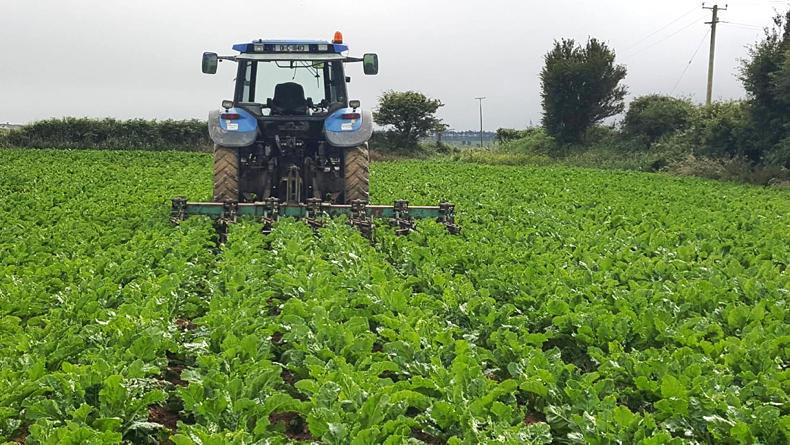
Martin harrowing the last of his beet crops before the rows close.
His hybrid and two-row crops won’t be ready until a week after this. He thinks there is good potential in his winter crops this year as the heads are long and well filled.
His spring wheat received a head spray on 31 June of Serena (0.2l/ha) and Prosaro (0.9l/ha) as well as King Foil magnesium (1l/ha). He is happy with the condition of the crop.
His spring barley is also progressing well having received a head spray last month of Siltra (0.6l/ha). His Planet crop looks excellent while his Gangway crop also looks reasonable.
Disease pressure remains low in his area despite the moist conditions. It has been one of the lowest disease pressure years in recent times, says Martin.
He is finishing the last of the inter-row cultivating on the headlands of his conventional varieties before the rows close
His spring oats received a head spray 14 days ago consisting of Velogy Era (0.7l/ha) and Epso Combitop (5kg/ha). The crop had come under pressure for moisture earlier in the season but now look good.
His beet crops are thriving. He is finishing the last of the inter-row cultivating on the headlands of his conventional varieties before the rows close. He uses a six row Armer Salmon cultivator on his New Holland TM165 on row crop wheels to harrow weeds before the rows close. He remains impressed with his Conviso Smart sugar beet crop. The crops were topped up with 126kg N/ha this month.
Machinery prep
These few weeks are dedicated to machinery preparation. After blowing out his Claas Lexion 670 after harvest each year, they remove the sieves and panels. This is to encourage as much airflow through the machine during winter to deter rodents. He will reassemble the combine this week as well as give it its standard yearly service. Servicing of the rest of the harvest equipment is ongoing.
Tuam, Galway
Soft rain over the past few weeks in Galway was well timed. When speaking to Gerry last, he said some of his crops were on the brink of drought stress. However, the arrival of moisture has rejuvenated crops and restarted grass growth. It has been windy in his area, however, but so far there is no lodging in crops.
Crops are now looking good after a much-needed drink. “Even the four acres of winter barley I considered ploughing up is now looking good,” Gerry explains. He did note, however, that winter barley crops are ripening unevenly.
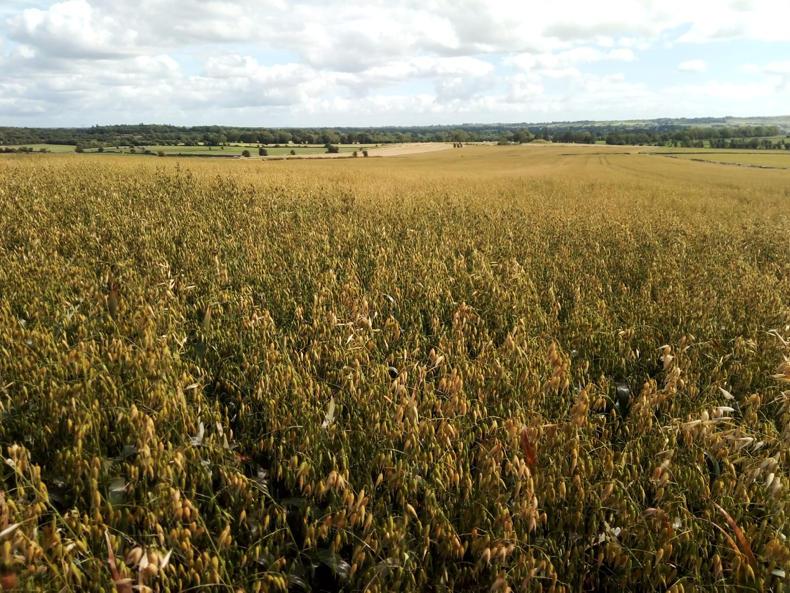
Gerry's winter oat crops are just beginning to turn but still remain quite green.
He thinks there could be up to a week’s difference in ripening between areas of the same field. The winter barley harvest is at least two weeks away, he remarks. Crows seem to be staying away from the crop for the most part. He uses cord to help deter them.
Gerry’s winter oat crops remain quite green and he is optimistic about their yield potential. He stores most of his winter oat crops and sells them during the winter. He bags and sells the grain in half-tonne bags to local sheep farmers mostly.
His spring barley crops look very lush. He applied the growth regulator Terpal last month as the crop was very rank
He doesn’t dry the grain and instead aims to harvest it at around 16% moisture content. He does blow air through it during winter, however.
His spring barley crops look very lush. He applied the growth regulator Terpal last month as the crop was very rank. This appears to have worked as the crop is short and stiff. On 13 June, the crop received a head spray of Macfare Xpro (0.8l/ha) but disease levels remain low.
Preparation for the harvest continues. Gerry uses a contractor to do his harvesting and baling. As well as round, he bales around 3,000 small square bales for 10 customers each year. He intends on mowing his GLAS traditional hay meadow this week. He uses a contractor to mow and bale while he does the turning. He has had a number of early enquiries about the hay.
Stabannon, Louth
While soil moisture levels are still below average for the time of year, Gareth has now received enough rainfall to see the season out he explains. Around 80mm of rain fell during the month of June and 20mm in July so far. He feels this rain may have arrived too late for some winter barley crops in the area. The heads are ripening fast on these crops but the straw remains green.
Other crops in the area have benefited significantly from the rainfall.
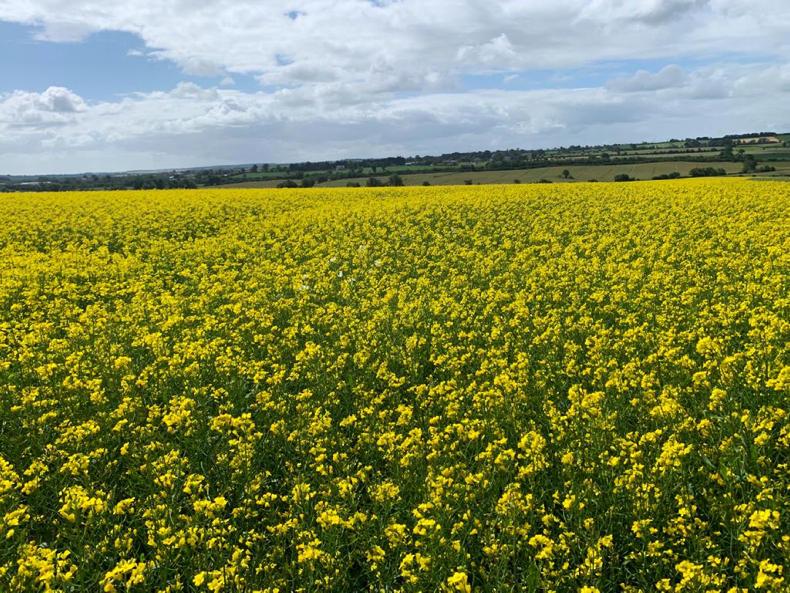
The first of the pods beginning
to for on Gareth's spring oilseed rape.
Gareth’s winter wheat crops enjoyed a low disease pressure year. The crops have got just one fungicide application but received multiple foliar nutritional feeds. With the return of wet weather, it remains to be seen if fusarium will become an issue given that no T3 fungicide was applied.
His spring beans are very clean and have responded well to the rain
He isn’t planning on applying a desiccant on his winter oilseed rape this year. The crop likely won’t be ready for harvesting until late August. Crops are thin. His spring oilseed rape is looking very well with the first of the pods beginning to form. He thinks his spring oilseed crops could outperform his winter crops.
His spring beans are very clean and have responded well to the rain. He is planning on applying potassium, magnesium, copper, boron and seaweed later in the week.
His spring oats received an application of biosulphur, seaweed and nitrogen on 16 June but look thin. His spring barley, however, is looking well and he is hopeful about its potential, especially crops on stronger ground.
Base Ireland
Gareth is one of the founding members of Base Ireland. The core aim of the group is to advance the knowledge and practice of conservation agriculture through “farmers educating farmers”.
All members in the group, which amounts to around 90 growers, follow a few soil care principles. These are minimal disturbance (non-inversion) of soil to establish crops, permanent organic soil cover with crop residue and/or living plants and the adoption of diverse rotations and cover cropping. Gareth is set to attend the first Base group meeting since the COVID-19 lockdown next week.
Kinsale, Cork
There has now been an adequate amount of rainfall in Cork. Crops continue to thrive as a result, explains Martin. Very heavy rain fell two Saturdays ago but there was minimal crop lodging.
Crop ripening has slowed. Martin’s Pixel winter barley won’t be ready for harvesting until 20 July.

Martin harrowing the last of his beet crops before the rows close.
His hybrid and two-row crops won’t be ready until a week after this. He thinks there is good potential in his winter crops this year as the heads are long and well filled.
His spring wheat received a head spray on 31 June of Serena (0.2l/ha) and Prosaro (0.9l/ha) as well as King Foil magnesium (1l/ha). He is happy with the condition of the crop.
His spring barley is also progressing well having received a head spray last month of Siltra (0.6l/ha). His Planet crop looks excellent while his Gangway crop also looks reasonable.
Disease pressure remains low in his area despite the moist conditions. It has been one of the lowest disease pressure years in recent times, says Martin.
He is finishing the last of the inter-row cultivating on the headlands of his conventional varieties before the rows close
His spring oats received a head spray 14 days ago consisting of Velogy Era (0.7l/ha) and Epso Combitop (5kg/ha). The crop had come under pressure for moisture earlier in the season but now look good.
His beet crops are thriving. He is finishing the last of the inter-row cultivating on the headlands of his conventional varieties before the rows close. He uses a six row Armer Salmon cultivator on his New Holland TM165 on row crop wheels to harrow weeds before the rows close. He remains impressed with his Conviso Smart sugar beet crop. The crops were topped up with 126kg N/ha this month.
Machinery prep
These few weeks are dedicated to machinery preparation. After blowing out his Claas Lexion 670 after harvest each year, they remove the sieves and panels. This is to encourage as much airflow through the machine during winter to deter rodents. He will reassemble the combine this week as well as give it its standard yearly service. Servicing of the rest of the harvest equipment is ongoing.
Tuam, Galway
Soft rain over the past few weeks in Galway was well timed. When speaking to Gerry last, he said some of his crops were on the brink of drought stress. However, the arrival of moisture has rejuvenated crops and restarted grass growth. It has been windy in his area, however, but so far there is no lodging in crops.
Crops are now looking good after a much-needed drink. “Even the four acres of winter barley I considered ploughing up is now looking good,” Gerry explains. He did note, however, that winter barley crops are ripening unevenly.

Gerry's winter oat crops are just beginning to turn but still remain quite green.
He thinks there could be up to a week’s difference in ripening between areas of the same field. The winter barley harvest is at least two weeks away, he remarks. Crows seem to be staying away from the crop for the most part. He uses cord to help deter them.
Gerry’s winter oat crops remain quite green and he is optimistic about their yield potential. He stores most of his winter oat crops and sells them during the winter. He bags and sells the grain in half-tonne bags to local sheep farmers mostly.
His spring barley crops look very lush. He applied the growth regulator Terpal last month as the crop was very rank
He doesn’t dry the grain and instead aims to harvest it at around 16% moisture content. He does blow air through it during winter, however.
His spring barley crops look very lush. He applied the growth regulator Terpal last month as the crop was very rank. This appears to have worked as the crop is short and stiff. On 13 June, the crop received a head spray of Macfare Xpro (0.8l/ha) but disease levels remain low.
Preparation for the harvest continues. Gerry uses a contractor to do his harvesting and baling. As well as round, he bales around 3,000 small square bales for 10 customers each year. He intends on mowing his GLAS traditional hay meadow this week. He uses a contractor to mow and bale while he does the turning. He has had a number of early enquiries about the hay.
Stabannon, Louth
While soil moisture levels are still below average for the time of year, Gareth has now received enough rainfall to see the season out he explains. Around 80mm of rain fell during the month of June and 20mm in July so far. He feels this rain may have arrived too late for some winter barley crops in the area. The heads are ripening fast on these crops but the straw remains green.
Other crops in the area have benefited significantly from the rainfall.

The first of the pods beginning
to for on Gareth's spring oilseed rape.
Gareth’s winter wheat crops enjoyed a low disease pressure year. The crops have got just one fungicide application but received multiple foliar nutritional feeds. With the return of wet weather, it remains to be seen if fusarium will become an issue given that no T3 fungicide was applied.
His spring beans are very clean and have responded well to the rain
He isn’t planning on applying a desiccant on his winter oilseed rape this year. The crop likely won’t be ready for harvesting until late August. Crops are thin. His spring oilseed rape is looking very well with the first of the pods beginning to form. He thinks his spring oilseed crops could outperform his winter crops.
His spring beans are very clean and have responded well to the rain. He is planning on applying potassium, magnesium, copper, boron and seaweed later in the week.
His spring oats received an application of biosulphur, seaweed and nitrogen on 16 June but look thin. His spring barley, however, is looking well and he is hopeful about its potential, especially crops on stronger ground.
Base Ireland
Gareth is one of the founding members of Base Ireland. The core aim of the group is to advance the knowledge and practice of conservation agriculture through “farmers educating farmers”.
All members in the group, which amounts to around 90 growers, follow a few soil care principles. These are minimal disturbance (non-inversion) of soil to establish crops, permanent organic soil cover with crop residue and/or living plants and the adoption of diverse rotations and cover cropping. Gareth is set to attend the first Base group meeting since the COVID-19 lockdown next week.






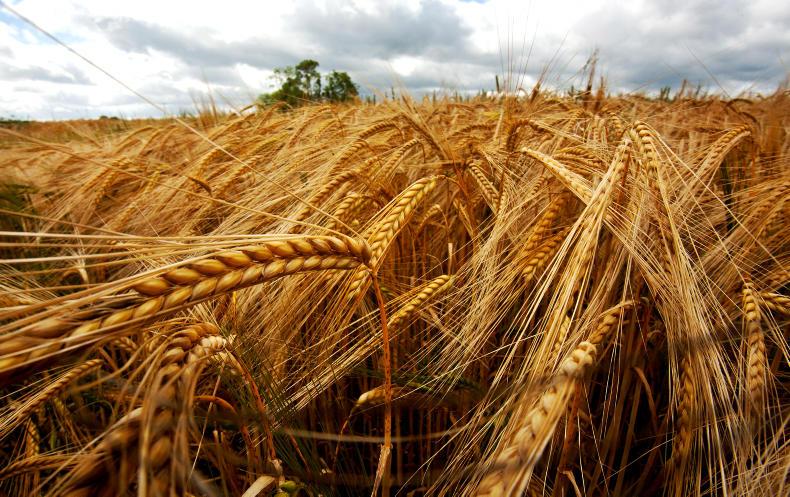


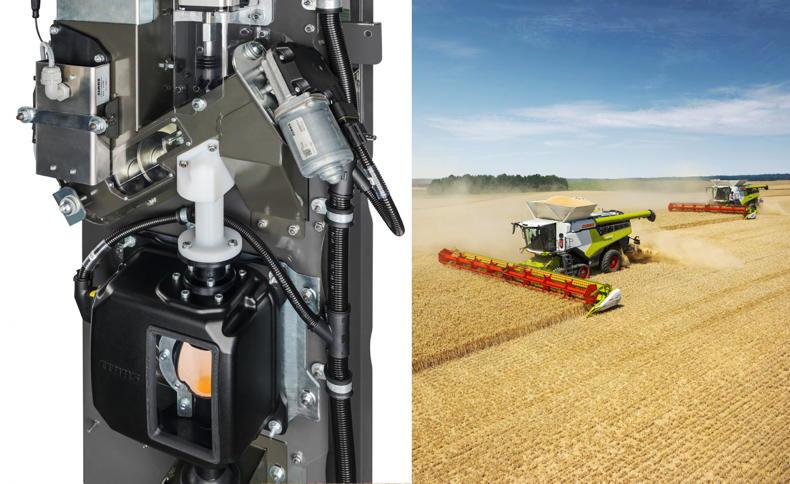
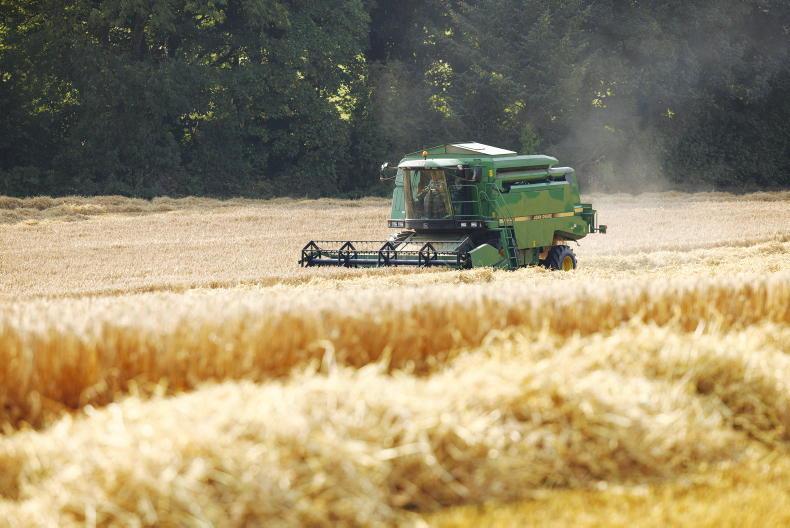
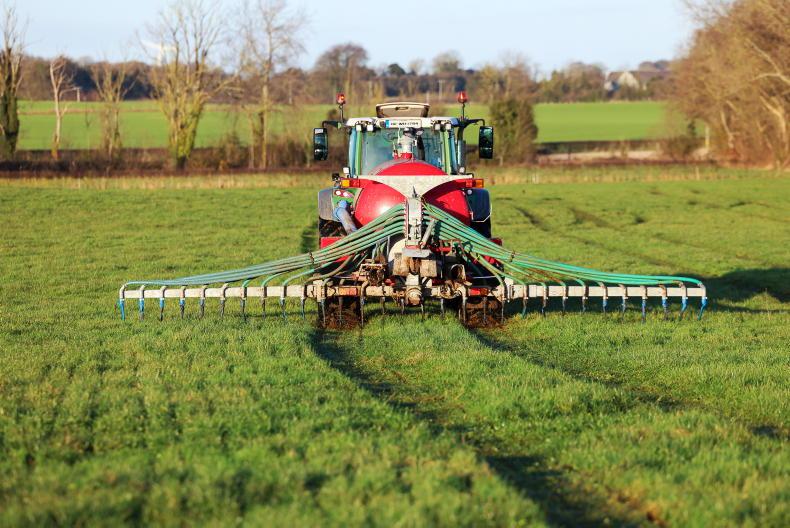
SHARING OPTIONS